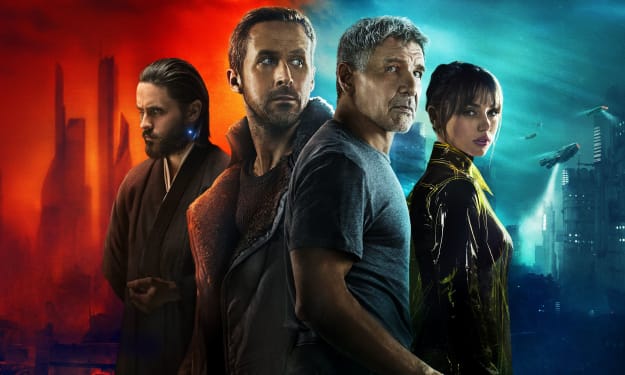
Video games have become a significant part of our lives, providing entertainment, education, and even career opportunities. It's hard to imagine a world without video games, but the truth is that they haven't been around for very long. The first video game was created in the late 1950s, and it was a far cry from the advanced and immersive games we enjoy today.
The world's first video game is credited to "Tennis for Two," a game developed in 1958 by physicist William Higinbotham. This game was a significant achievement at the time, as it was played on an oscilloscope and simulated a game of tennis. Players used knobs to control their paddles, and a dot represented the ball. It was a simple game, but it was revolutionary for its time.
While "Tennis for Two" is often considered the first video game, there were earlier games that could be considered precursors to video games. In 1952, A.S. Douglas created a computer game called "OXO" (also known as "Noughts and Crosses" or "Tic Tac Toe") on the EDSAC computer at the University of Cambridge. This game allowed two players to play the classic game on a computer screen, and while it wasn't a video game in the traditional sense, it was a significant step towards the development of video games.
In the 1960s, more early games were created that laid the foundation for the video games we know today. "Spacewar!" developed by Steve Russell was one such game, played on the PDP-1 computer, and is considered the first widely known video game. The game involved two players controlling spaceships and trying to destroy each other while avoiding a gravitational field. It was a complex game for its time and showcased the potential of video games as a form of entertainment.
It's fascinating to think about how far video games have come since those early days. From simple games played on oscilloscopes to immersive virtual worlds that can be explored by millions of people, video games have come a long way. Today, video games are a multibillion-dollar industry, and they are played by people of all ages and backgrounds all over the world.
But even as video games continue to evolve and become more advanced, it's essential to remember their humble beginnings. Without the pioneering work of developers like William Higinbotham, A.S. Douglas, and Steve Russell, we might not have the incredible games we have today. The first video games may have been simple, but they paved the way for an industry that has changed the world.
Over the years, video games have become much more than just a form of entertainment. They have also become an important tool for education, allowing students to learn about history, science, and many other subjects in a fun and engaging way. Video games have also become a significant part of popular culture, with their characters and stories inspiring movies, TV shows, and even theme park attractions.
One of the most significant advancements in video games was the introduction of home consoles in the 1970s. This allowed people to play video games in the comfort of their own homes, and it paved the way for the explosion of the video game industry in the 1980s and 1990s. Games like Pac-Man, Donkey Kong, and Super Mario Bros. became household names and helped to establish video games as a mainstream form of entertainment.
The advent of the internet and mobile devices in the 21st century has also had a significant impact on video games. Online gaming has become a massive industry, with millions of people playing games like Fortnite, League of Legends, and World of Warcraft every day. Mobile games have also become incredibly popular, with titles like Candy Crush and Angry Birds being downloaded billions of times.
As video games have evolved, so have the debates surrounding them. Some people worry that video games are addictive and can have negative effects on mental health, while others argue that they can be a positive force, promoting creativity, problem-solving skills, and social connections. There have also been concerns about violence and other adult themes in video games and their potential impact on young people.
Despite these debates, there's no denying that video games have had an enormous impact on our world. They have brought people together, sparked creativity, and provided hours of entertainment. And as technology continues to advance, it's exciting to think about where video games will go next. From virtual reality to augmented reality and beyond, the possibilities are endless, and the future of video games is bright.
As the popularity of video games continues to grow, so too does the diversity of the industry. Today, there are games that cater to all ages, interests, and skill levels. From simple puzzle games to complex simulations, there is a game for everyone.
Moreover, video games have become a significant force in the economy. The video game industry generates billions of dollars in revenue each year and provides jobs to thousands of people worldwide. Esports, or competitive video gaming, has also emerged as a lucrative industry, with professional players and teams competing for large prizes in major tournaments.
But it's not just about money and entertainment. Video games have also been used for important purposes such as healthcare and therapy. For example, video games have been used to treat anxiety, depression, and other mental health conditions, as well as to help patients with physical therapy and rehabilitation.
Moreover, video games have also been used as a tool for social change. Games like "Never Alone," which was developed in partnership with Alaska Native communities, explore and preserve indigenous cultures. Similarly, "That Dragon, Cancer" is a deeply emotional game that explores the experiences of a family dealing with a child's terminal illness.
In conclusion, the world's first video game may have been "Tennis for Two," but since then, video games have come a long way. They have become a significant part of our culture, economy, and society. They continue to evolve and expand, with new technologies and innovations pushing the boundaries of what is possible. Whether you love video games or not, there is no denying the impact they have had and will continue to have on our world.
About the Creator
Abu
Learn Listen Won






Comments
There are no comments for this story
Be the first to respond and start the conversation.